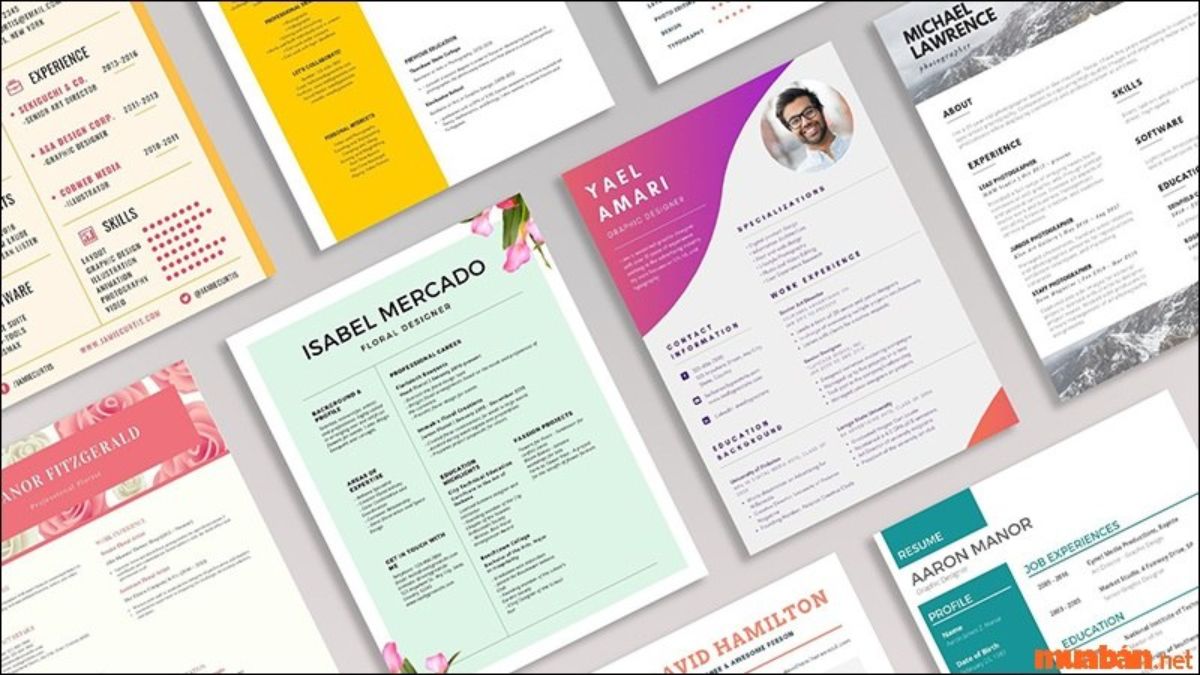For recent graduates, creating a professional teaching CV can be challenging due to limited practical experience. This article will provide detailed guidance on building an impressive teaching CV, helping young candidates confidently apply for positions despite having little teaching experience.
How to Write a Teaching CV for Fresh Graduates with Limited Teaching Experience
To write an impressive CV for a teaching position when you have limited teaching experience, you need to focus on highlighting your skills, educational background, and other relevant experiences.
1. Emphasize Internship Experience

You can list relevant activities you’ve participated in on your CV
One of the most effective ways to make an impression is to list teaching internships, teaching assistantships, or related activities you participated in throughout your studies. For example, helping instructors during classes, participating in lesson planning, or supporting students in group assignments. These experiences help demonstrate your teaching skills even if they weren’t from formal employment.
2. Focus on Teaching Skills
Skills such as lesson planning, classroom management, or using technology in teaching can all be listed in your CV. These skills can be developed through online courses, volunteering, or educational activities at school.
3. Volunteer Experience and Extracurricular Activities
If you’ve participated in volunteer activities such as being a teaching assistant, leading study clubs, or working as a sports coach, these can be included in your CV. These experiences show that you can work with students and have had real interactions with student groups, even if not in formal teaching positions.
4. Certifications and Professional Training

Teaching certificates like TESOL
Teaching certifications such as TESOL, CELTA, or professional development courses are important factors that help build trust with employers. List all completed courses and certifications, and if you’re currently enrolled in any courses, don’t forget to mention them to show employers that you’re thoroughly preparing for the teaching profession.
5. Career Objectives
A clear career objective helps employers understand your motivation and goals in pursuing a teaching career. Clearly state why you want to become a teacher, what you hope to achieve in the profession, and your commitment to learning and development. Career objectives help make your CV more personalized and show that you have a clear direction in the profession.
6. Professional Language
Avoid using vague or overly elaborate language. Your CV needs to clearly demonstrate your abilities, experience, and career direction. Make sure your CV is free of spelling or grammatical errors, as this will reflect your professionalism.
Important Points to Note When Writing a Teaching CV for Those with Limited Experience
1. Don’t Exaggerate or Falsify Experience
Honesty in your CV is crucial for building credibility with employers. Don’t try to exaggerate or add experiences you haven’t had. Falsifying experience can pose significant risks if discovered, not only affecting your personal image but also causing employers to lose trust. Instead of focusing on jobs you haven’t done, share the skills and experiences you’ve genuinely gained, such as from courses, volunteer projects, or teaching assistant work. This shows that you’re actively developing your capabilities and ready to learn.
For example, if you’ve supported a lead teacher in classroom activities or participated in a teaching project, describe in detail your role and the skills you learned.
2. Don’t Copy CV Templates Mechanically

Your CV should be personalized to show your unique qualities to employers
Each CV needs to be personalized to reflect your style and career direction, especially when you’re new to the teaching profession. A proper CV should be clear about why you chose education and the values you want to bring.
Use CV templates only as a reference for structure and presentation. For example, instead of copying an entire job description, you can take ideas and express them in a way that fits your experience and personality. Also, adjust CV sections to match the requirements of the position you’re applying for to show that you’ve researched and understand the role.
3. Pay Attention to Format and Language
The presentation and language used in your CV are equally important, as these are the first elements employers notice. A professional CV must have a clear layout, be easy to read, and be free of spelling or grammatical errors. This shows that you are careful and respect the reader. The CV format should be neat, with clear headings and reasonable page layout so that information isn’t too dense.
Language should be concise, clear, and professional. Avoid flowery or imprecise words, instead using strong and specific verbs to highlight your contributions. For example, instead of just saying “good communication skills,” you could write “led and coordinated with student groups in volunteer projects.” Using clear language helps readers easily grasp information and understand the value you bring.
Writing an impressive CV as a fresh graduate isn’t easy but is entirely possible if you know how to highlight your strengths. Remember that a good CV not only helps you impress employers but also opens up career opportunities for you.





 Hồ Chí Minh: 028 7309 9959 (Phím 1)
Hồ Chí Minh: 028 7309 9959 (Phím 1)
